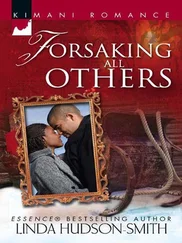The house system is separate from the forms. The forms run horizontally, the house systems run vertically. Girls from all three forms in each year are in all four houses. The houses compete with each other for cups—perfectly real silver cups that are kept in the Hall. The houses are called after Victorian poets. I’m in Scott. The others are Keats, Tennyson and Wordsworth. No Shelley and no Byron, I suppose because they have faintly disreputable auras. Gramma was fond of all of those poets except, ironically, Scott. The form system controls lessons, and the house system everything else—games particularly, but also the system of points gained or lost for behaviour. We’re supposed to care intensely about our houses and their relative standing, and look out for other people in our houses, whatever their form. Needless to say, I do not give a damn about this. It’s a granfalloon in the purest sense, and I am enduringly grateful to Vonnegut for giving me the word.
Anyway, I was trying to talk about class. In Lower VC, which are the only girls I know well, Sharon’s family have the most money. She goes on foreign holidays more often than most girls, her father is a surgeon, they have a big house and a big car. But classwise, she rates quite low, because she’s Jewish and that makes her different, and because of the other intangible class thing that’s like magic. She doesn’t have a pony, though they could easily afford one. They have a swimming pool, but not a pony, because her parents’ priorities are different. She goes skiing at Christmas, but she goes to Norway, because her parents won’t go to Germany or Switzerland.
Julie’s parents don’t have much money at all. Her uniforms were her sister’s. They have an old car. But her sister is Head Girl, and her mother was a prefect, and won a tennis cup for Wordsworth, which is her house too. They put Julie in Wordsworth because her mother and her aunts and her sister were in Wordsworth. There’s an old black-and-white photograph of Julie’s mother and the cup in the Games Room. And the label under that picture says “The Hon. Monica Wentworth,” because Julie’s mother’s father is a viscount. Julie isn’t an Hon., but she scores higher classwise than anybody else because her mother is. It’s not just that, it’s the combination of the Hon. and the cup and the school tradition. And Julie’s not all that clever, but she’s good at games, which is a lot more important.
There’s a fat giggly girl in the Upper Fourth who’s Lady Sarah. Her father is an earl. I think Julie would defer to her opinion, but I’m not sure. Class isn’t pure snobbery, it’s lots of things. But everyone cares about it madly. One of the first questions they asked me was about what kind of car my father has. “A black one” didn’t go down too well. They couldn’t believe I didn’t know. I didn’t say I’d only seen it a couple of times and I didn’t like cars much anyway. It turns out it’s a Bentley—I wrote and asked—which is an acceptable kind of car. But why do they care? They want to be able to place everyone very precisely. Of course, they quickly saw that I came nowhere—no pony, no title, and Welsh. I got points for the kind of house my father lives in—it’s fathers they’re interested in. Some of the girls have divorced parents—poor Deirdre does, for instance—but even if they live with their mother, it’s the father that counts.
Class is entirely intangible, and the way it affects things isn’t subject to scientific analysis, and it’s not supposed to be real but it’s pervasive and powerful. See; just like magic.
Wednesday 17th October 1979
When I am grown up and famous, I will never admit to having attended Arlinghurst. I’ll pretend never to have heard of it. When people ask where I was educated, I’ll leave it out.
There are other people like me out there. There is a karass. I know there is, there can be.
Thursday 18th October 1979
This school is enough to make anyone a communist.
I read The Communist Manifesto today—it’s very short. It would be like living on Anarres. I’ll take that over this any day.
I loved Mor, but I never appreciated her enough. I never really understood how wonderful it was to always have someone to talk to who would know what you were talking about, and someone to play with who understood the kind of things I wanted to play.
Only one more week of school before half term.
Saturday 20th October 1979
Blessed interlibrary loan. They’ve found Purposes of Love and The Last of the Wine for me!
I took back last weeks’s eight books. I also got out five other things by authors I know and The Magus . I’ve never heard of the author (Fowles) but hey, a book about a wizard!
I ordered twenty-eight books, from lists on title pages. The librarian, the man, looked a little taken aback, but didn’t make a fuss about it.
It was raining stair-rods, and almost all the leaves are off the trees. I went to the bakery cafe again, because the other girls don’t go there and they’re all over the proper cafes in town. Afterwards I walked over to look at the water and the swan hissed at me. My shoes were sinking into the mud at the edge, but I went on under the trees, looking for fairies. There were one or two, but hard to see, and not inclined for conversation, which is a pity, because apart from a letter from my father I haven’t had any at all this week.
James Tiptree, Jr. is a woman! Gosh!
I never would have guessed though. My goodness, Robert Silverberg must have egg all over his face. But I bet he doesn’t care. (If I’d written Dying Inside I wouldn’t mind how much of a fool of myself I made about anything ever again. It might be the most depressing book in the world, I mean it’s right up there with Hardy and Aeschylus, but it’s also just so brilliant.) And the Tiptree stories are good, too, though none of them quite up to “The Girl Who Was Plugged In.” I suppose I can see doing that so as to get respect, but Le Guin didn’t, and she got the respect. She won the Hugo. I think in a way Tiptree was taking the easy option. But think how fond her characters are of misdirection and disguise; maybe she is too? I suppose all writers use characters as masks, and she was using the male name as another layer. Come to that, if I was writing “Love is the Plan, the Plan is Death” I might not want people to know where I lived either.
I was the only person not to get a bun today, not that I care. Even Deirdre got one from Karen. Deirdre looks at me in a strange puzzled way, which is actually worse than anything. I understand Tiberius’ reliance on Sejanus much better now. I also understand how he became peculiar. Being left alone—and I am being left alone—isn’t quite as much what I wanted as I thought. Is this how people become evil? I don’t want to be.
I wrote to Auntie Teg, trying to sound cheerful. I also wrote to my father, hoping I might persuade him to take me to see her, maybe, and see Grampar in hospital. They’re the only people I have left now. He wouldn’t want to see them, but I could and he could wait in the car. It would be really nice to see some people who like me. Five more days to half term and getting out of this place for a week.
In chemistry today, Gill came and sat by me. It was very brave of her, actually, considering how everyone has been behaving. “So you don’t think I’m a voodoo leper?” I asked straight out at the end of class.
“I’m a scientist,” she said. “I don’t believe in any of that. And I know you got in trouble for sending me a bun.”
Читать дальше
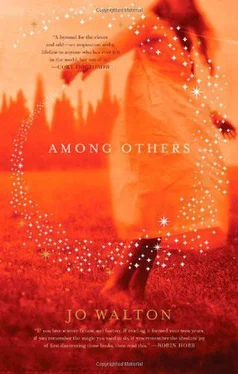


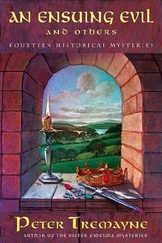
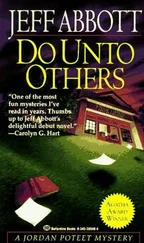
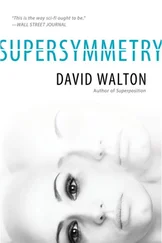

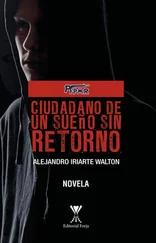


![Brian Thompson - A Monkey Among Crocodiles - The Life, Loves and Lawsuits of Mrs Georgina Weldon – a disastrous Victorian [Text only]](/books/704922/brian-thompson-a-monkey-among-crocodiles-the-life-thumb.webp)
